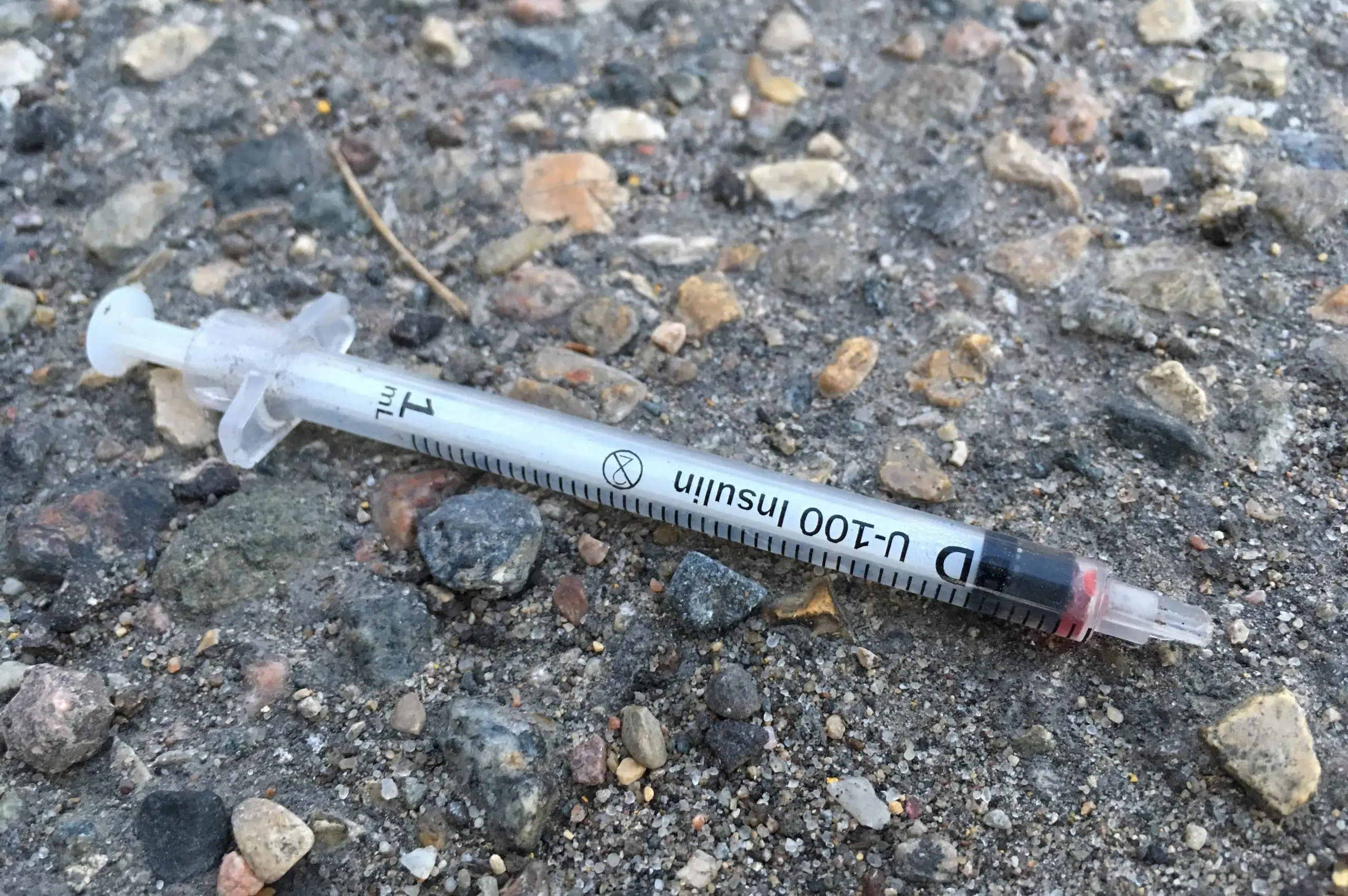The snow has melted, which could mean more needles being seen on the ground.
There are a number of resources for people to pick up a needle, such as the Saskatchewan Health Authority’s Street Project and AIDS Programs South Saskatchewan’s “reportneedles” website.
Vidya Reddy, an education and research specialist with APSS, said the organization has seen a slight increase when it comes to needle pickup calls.
“We have not yet seen a drastic increase, but we know it’s coming,” he said.
APSS doesn’t just attend areas when there’s a report but in the warmer months, it conducts what it calls a needle pickup sweep.
“(We do this) in high community incident areas because our web app is also able to Geo-map those hot spots where community needle incidents are high,” Reddy said.
He added the organization will never release the data because of the stigma surrounding drug use.
Throughout the summer, APSS will conduct the sweeps four to six times.
In Regina, there are four Sharps containers that people can use if they have a needle to dispose of. Reddy believes the city could use more of them.
“It would definitely reduce the (number) of community needle incidents as well,” he said.
According to Reddy, since the “report a needle” program started in April 2021, APSS has picked up more than 35,000 needles.
But it’s not just APSS that collects needles in the city; Regina Fire and Protective Services will help out as well.
Deputy Chief Dustin McCullough said as of right now, Regina Fire is on par with the number of needle calls from previous years.
“Obviously (we’ve) had a little bit of a later spring this year and a little bit later melt (which) could impact those numbers a little,” he said.
McCullough explained why the fire department decides to get involved with these calls.
“It’s about community safety and so if there is a way we can protect the citizens, we’ll certainly be there to support,” he said.
McCullough added that because The Street Project and APSS are not open 24 hours, Regina Fire will take that call when those are closed.
He said the number of calls to the fire department for needle pickup has dropped significantly.
Meanwhile, Reddy said APSS also provides naloxone training, which he believes is important for everyone to have. Naloxone counteracts the effects of an opioid overdose.







